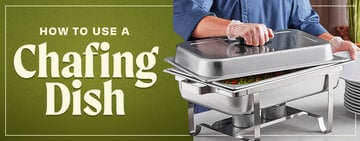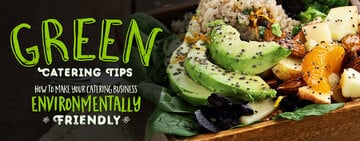5 Tips for Outdoor Catering
With summer underway, more and more people are planning to hold their events outdoors. While the warmer months are perfect for outdoor catering at events such as weddings and picnics, bringing the party outside comes with its own challenges. Outdoor pests, water access, and inclement weather are just some of the considerations you need to plan for. Check out our top 5 outdoor catering tips to help you get prepared for your next outdoor event.
Shop All Catering Supplies and Catering Equipment1. Get Familiar with Your Outdoor Venue
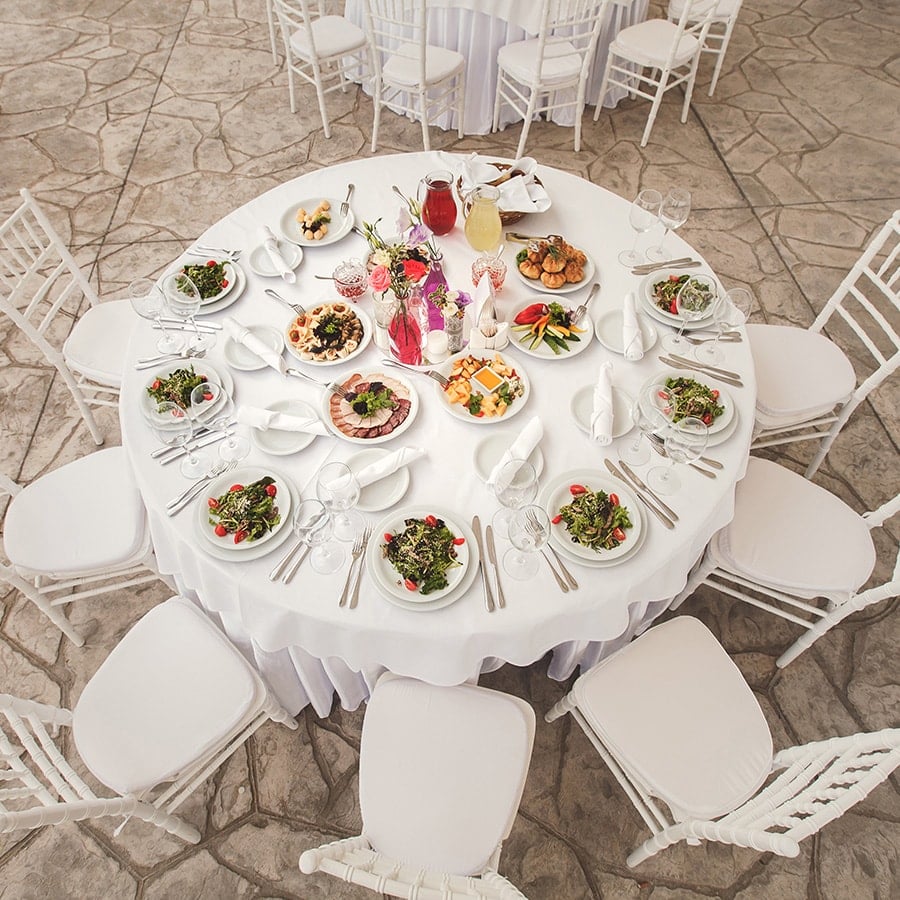
It’s best to visit the location well in advance of the event so you can plan your outdoor catering setup and see the resources that are available to you. The venue layout could dictate what equipment you’ll need to bring as well as your serving plan.
For example, if you’re working out of a truck that needs to be parked out of sight from guests, it’s important to know how far your servers will need to carry dishes and other supplies from your preparation space. In addition, you'll want to make sure the space is large enough to accommodate your guests while promoting social distancing.
If you are unable to go to the venue before the day of the event, be sure to contact the location’s representative and talk to them about the site plan. Remember to ask about even the smallest details that you might have discovered if you had seen the site. Asking about the terrain, electrical hookup placement, and light levels can easily be overlooked, but these details could influence how you are able to work on the day of the event.
2. Know Your Zoning Restrictions and Have the Required Permits
Zoning ordinances are typically used to differentiate between commercial and residential spaces and often define how a particular geographic area can be used. Local government policies can involve zoning restrictions for the event, especially if you are working in a temporary space like a closed street or parking lot. In many places, permits are also required for approval from the health department, fire marshal, and other officials. If you aren’t planning the event, make sure that you know what the approved plans are to avoid fines.
3. Plan Your Menu According to the Space
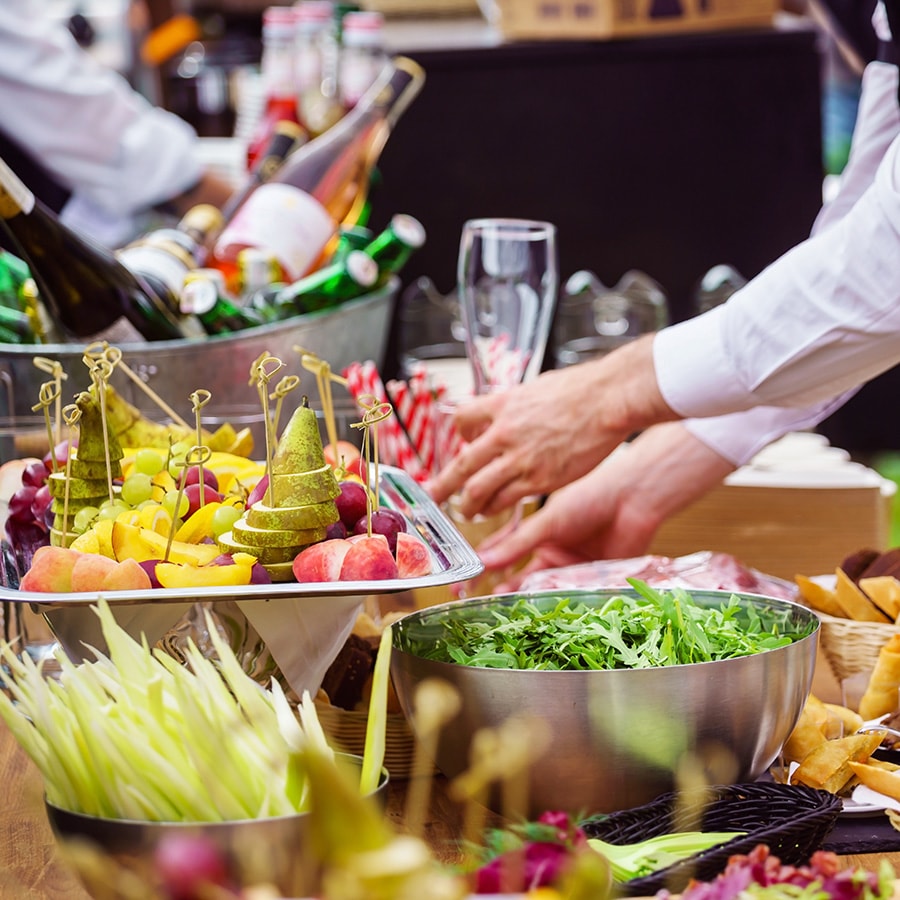
When choosing your menu items, consider how the outdoor conditions could affect what your guests would like to eat. Some factors that might influence your decision include the available space, time of year, and noise level. For instance, if your guests are dining next to speakers that are playing music loudly, some patrons may not want to sit for very long and would prefer easily portable food to take to a quieter location.
Customers in crowded eating areas may feel the same way. On the other hand, guests at an outdoor wedding are typically prepared to remain seated for a full meal, no matter the noise level or number of people present.
4. Have an Inclement Weather Back-Up Plan
One of the trickiest parts of outdoor catering is the weather, which can instantly put your meal service out of commission if you aren’t prepared for it. However, it’s important not to assume the event is canceled if the weather turns out to be less than ideal. Preparing for inclement weather with the right protocols and supplies can help save your event in case of storms. For example, having a canopy tent on hand can provide shelter for your guests as well as your equipment.
During set up, take the time to find out if the extension cords and generators powering your equipment can be safely shielded from rain. Many outdoor catering supplies are not completely weatherproof, so cover over your preparation area is a must-have to keep them safe. Failing to prepare a contingency plan could leave you scrambling on the day of the event and may hinder your ability to perform your duties.
5. Choose Equipment That is Compatible with the Event Space
Cooking outside instead of in a traditional kitchen setting can present many challenges for those who aren’t used to it. Without the comforts of a kitchen, having the right outdoor catering equipment for your space can determine how smoothly your event runs. Below are some key components to consider when deciding how to create your temporary outdoor kitchen.
Electrical Power Sources and Hookups
Having an electrical power source is useful for any refrigerators or holding cabinets you may need for food preparation. Even if the venue provides them, consider having a generator and extension cords on hand to ensure that your equipment can be powered when you arrive on site. When purchasing a generator, make sure that its voltage is compatible with your equipment. You do not want to invest in a generator with a lower capacity than your equipment requires.
Liquid Propane or Natural Gas for Cooking
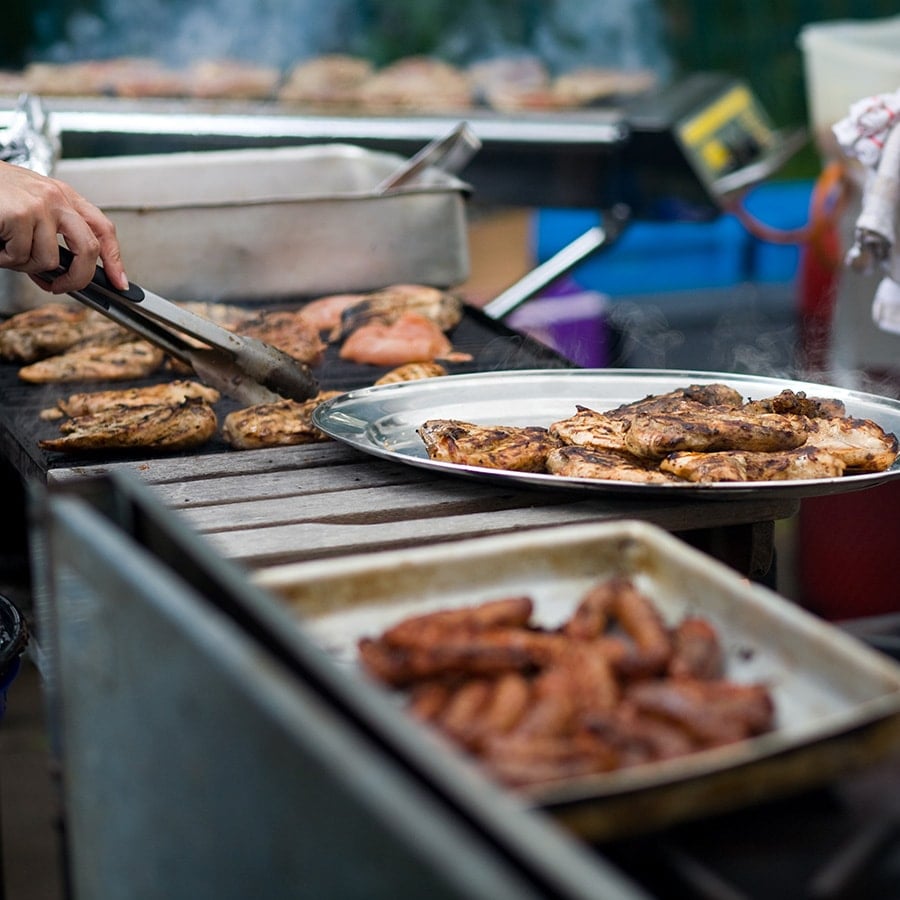
Decide whether you would like to work with liquid propane or natural gas as your heat source for cooking. Liquid propane is more energy-efficient, so you may not need to bring as many heavy tanks with you to your location. On the other hand, natural gas is often more cost-effective than propane. When selecting your power source, do not feel limited by which option your equipment is already set up for. In many cases, you can purchase conversion kits to make your supplies compatible with your selected source. Be sure to arrange for a professional to safely install your conversion kit in advance of your event.
Portable Cooking Equipment
If you cater outdoor events often, you may want to invest in mobile outdoor catering equipment. Supplies like outdoor grills and portable gas ranges are easy to move from place to place. Additionally, many options are designed for simple setup, so you can connect to power and begin cooking.
Outdoor catering events can help your business to make the most out of the warmer months. Before you take on an outdoor event, refer to our top 5 outdoor catering tips to learn about what kinds of supplies and strategies are required for a successful event.

